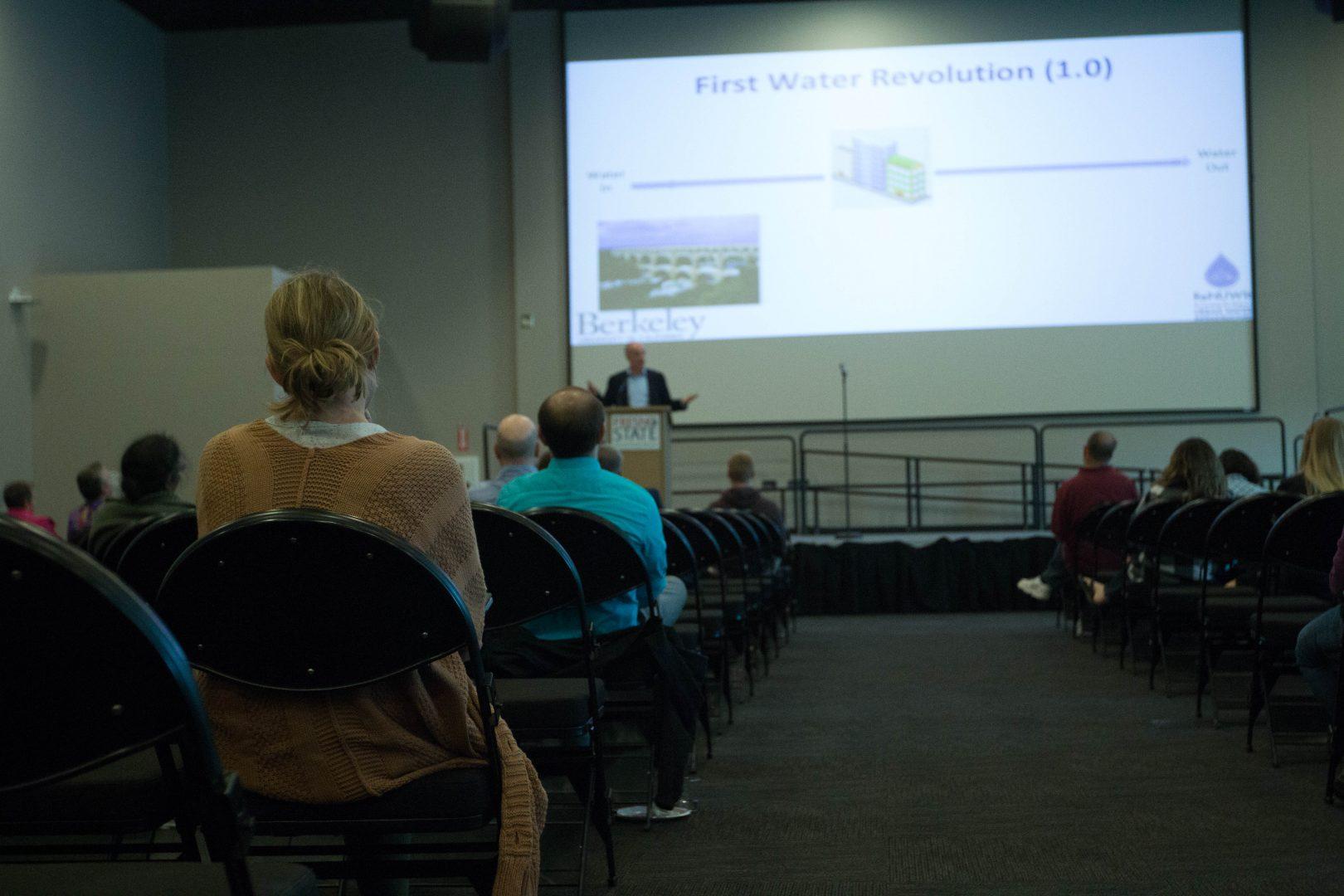Fresno State students and faculty last Thursday met the author of a book they’ve been reading throughout the semester.
Author and UC Berkeley professor David Sedlak visited Fresno State for a public forum and book signing for his book, “Water 4.0: The Past, Present and Future of the World’s Most Vital Resource.”
The book was selected through the Fresno State water cohort, “Reading About Water Book Club,” and was incorporated into various courses across different colleges on campus.
Sedlak’s book details water systems in history, current water issues plaguing the planet and water-related dilemmas that might pose a threat to future generations.
Frederick Nelson, chair of the department of liberal studies and a member of the water cohort, said Sedlak’s book helps readers learn that there are no simple solutions to water-related issues because they all have advantages and disadvantages.
“It helps you see that this is a problem with lots of messy parts to it,” Nelson said. “Access to safe water and how we handle our water is not one that has one simple solution — but instead, has many components to it.”
Christy Ceesumner, a graduate student at Fresno State, said that reading Sedlak’s book caused her to become more aware that there was a lot she didn’t understand about water issues.
“I want to get involved with being more water-conscious,” Ceesumner said. “I’m disturbed about drinking water that’s coming from sources that [are] not as pure as I was expecting.”
Nelson said the book helped him realize that water issues cannot be solved quickly.
“These are projects that take long times to construct,” Nelson said. “Many of the solutions that we put in place and we start on now — the current population may not see the benefits from them.”
In his talk, Sedlak covered various solutions to water dilemmas, like reverse osmosis, desalination and stormwater harvesting. He then explained how climate change is affecting water supplies worldwide.
California, in particular, might face issues like drought, increased precipitation from rain instead of snow and an increase in water evaporation due to higher temperatures. Sedlak said book signings provide a sense of fulfilment.
“Writing a book is a very isolating and lonely thing — and you don’t know if you’re saying something that will resonate with people or not,” Sedlak said. “[It] helps make all those hours squirreled away in your office worthwhile.”
When it comes to water issues, Sedlak said citizens aren’t necessarily voiceless in the process. He said it’s something to take advantage of.
“I think the most important thing we can do is to become involved in the big decisions that are made about water,” Sedlak said. “If you don’t have an opinion about it, [politicians] make the decision for you.”
Sedlak left the audience with one thing in mind: the voices of today might shape the water solutions of tomorrow.




